193 posts
Latest Posts by galaxy62 - Page 2
VIBE CHECK *cups your face and kisses you till you're breathless*
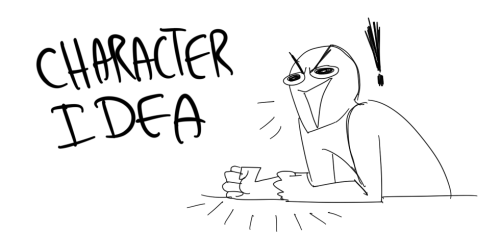
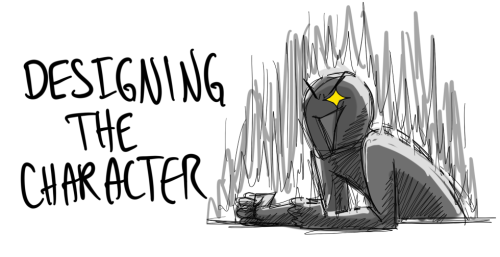
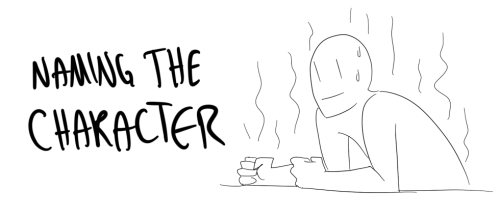
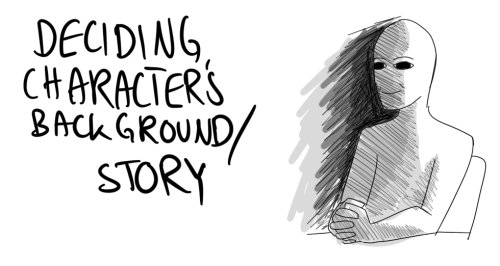
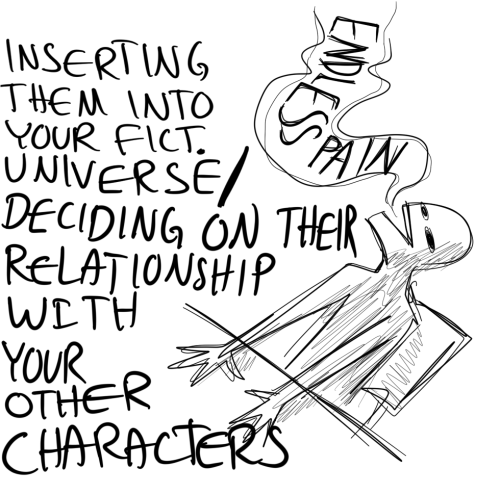
the suffering never ends
What people think why i became a bookbinder: Oh she wants to explore her artistic horizon with those pretty leather bound books of hers. She even gives them out as gifts to her friends. It most likely helps her with anxiety or maybe she just wanted a more special costume made notebook.
Why I actually became a bookbinder: I just illegally downloaded and printed out several of my favourite fanfics and books and started binding them into books cuz I love reading them but looking at screens for too long gives me headaches.
Some words to use when writing things:
winking
clenching
pulsing
fluttering
contracting
twitching
sucking
quivering
pulsating
throbbing
beating
thumping
thudding
pounding
humming
palpitate
vibrate
grinding
crushing
hammering
lashing
knocking
driving
thrusting
pushing
force
injecting
filling
dilate
stretching
lingering
expanding
bouncing
reaming
elongate
enlarge
unfolding
yielding
sternly
firmly
tightly
harshly
thoroughly
consistently
precision
accuracy
carefully
demanding
strictly
restriction
meticulously
scrupulously
rigorously
rim
edge
lip
circle
band
encircling
enclosing
surrounding
piercing
curl
lock
twist
coil
spiral
whorl
dip
wet
soak
madly
wildly
noisily
rowdily
rambunctiously
decadent
degenerate
immoral
indulgent
accept
take
invite
nook
indentation
niche
depression
indent
depress
delay
tossing
writhing
flailing
squirming
rolling
wriggling
wiggling
thrashing
struggling
grappling
striving
straining

guess which frame I gave up on










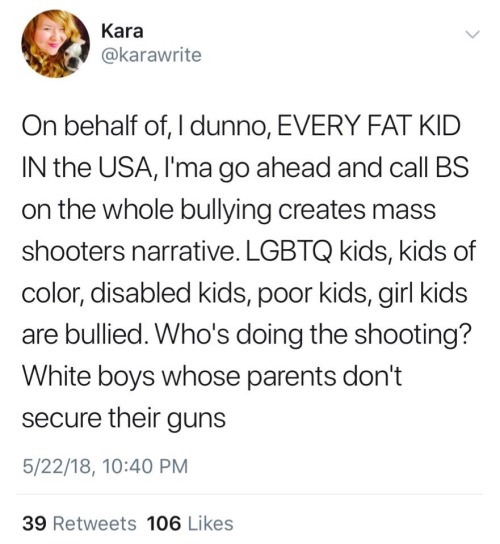








I Wrote a Novel… Now What? Your Revision and Editing Checklist
If you’ve completed a first draft of your novel, congratulations! However, after the hustle of getting that draft written, you may be wondering… what do you do with it now? This January and February, NaNoWriMo’s “Now What?” Months are here to help guide your novel through the revision, editing, and publishing process.
To start you off, we’ve taken some inspiration from previous blog posts to create this handy-dandy Revision and Editing Checklist. Don’t know where to start? Use this guide to help you navigate the tricky waters of novel revision!
Image background by rawpixel on Unsplash.
i’ve been doing my homework on how to break into a writing career and honestly. there’s a Lot that i didn’t know about thats critical to a writing career in this day and age, and on the one hand, its understandable because we’re experiencing a massive cultural shift, but on the other hand, writers who do not have formal training in school or don’t have the connections to learn more via social osmosis end up extremely out of loop and working at a disadvantage.
31 Days Of Character Development: May Writing Challenge

– You’ve all been really enjoying these monthly writing challenges, so I decided to do a small series of prompt lists for developing your longer stories. This month is character development, and the next month will be plot development and worldbuilding. I look forward to seeing all of your guys’ responses here using the hashtag #wordsnstuffcharacterdevelopment and over on Instagram, where you can tag me @ writingandsuch.
☼ Prompt List ☼
Days 1-10: Motivation & Behaviour
What does your character think they want?
What does your character actually want?
What does your character need?
What are your character’s recurring feelings?
If you had to write 10 rules or beliefs your characters follow, what would they be?
Write a scene in which your character’s past affects their current actions.
What are your characters fears and where do they stem from?
What is your character’s biggest secret? Why do they keep it?
Where does your character stand on the alignment scale?
What does your character have to lose?
Days 11-20: Physical/Personality Traits and Relationships
What are your character’s strengths?
What are your character’s weaknesses?
Find a face claim for your character and identify the differences.
What is your character’s ethnic background?
Write a short blurb of your character interaction with each other character.
List and explain your character’s positive traits.
List and explain your character’s negative traits.
Describe your character’s sense of style.
What are your character’s flaws?
Describe your character from the point of view of someone who hates them.
Days 21-30: Role, Impact, and Evolution
What role does your character play in the progression of the plot?
How could a reader relate to your character?
How does your character’s past affect people’s view of them?
To what extent does your character help the conflict resolve?
To what extent does your character worsen the conflict?
What are the major struggles your character is facing?
Describe your character in beginning vs. the end of the story?
What events play the largest part in changing your character?
How do you want your reader to remember the character?
What is the character’s overall impact on other characters and the story overall?
Bonus Challenge (Day 31)
Describe your character’s backstory, “once upon a time” style
Support Wordsnstuff!
If you enjoy my blog and wish for it to continue being updated frequently and for me to continue putting my energy toward answering your questions, please consider Buying Me A Coffee.
Request Resources, Tips, Playlists, or Prompt Lists
Instagram // Twitter //Facebook //#wordsnstuff
FAQ //monthly writing challenges // Masterlist
MY CURRENT WORK IN PROGRESS (Check it out, it’s pretty cool. At least I think it is.)
What sort of questions should I be asking my beta readers?
QUESTIONS TO ASK YOUR BETA READERS:

When I send out my chapter to be read over by my beta readers, I always include a set of questions typed out at the bottom, grouped into different categories such as: plot, pacing, character, setting, etc.
You might want to tailor the questions depending on the genre or which chapter it is. For example, if it’s the first chapter you’ll want to ask them about how well your story managed to hook them, or if they managed to easily get an idea of the world you’ve introduced them to. If it’s the climax you might want to ask if the action scenes are fluid, and if the plot twist/s were predictable or surprising.
Here’s some example questions that you could use:
Opening Chapter:
What is your first impression of the main character? Do you find them likable? Annoying? Boring?
After reading it for the first time, what is your first impression? Was it cohesive and compelling? Boring and confusing?
Did the first sentence/paragraph/page efficiently grab your attention and hook you in?
If you were to read this chapter in a bookstore/library would you be convinced to buy it? Or would you need to read further before deciding? Why or why not?
Did you get oriented fairly quickly at the beginning as to whose story it is, what’s going on, and where and when it’s taking place? If not, what were you confused about at the beginning?
Does the first chapter establish the main character efficiently? Do they feel believable?
Characters:
Could you clearly imagine what the characters looked like? If not, who?
Who was your favourite character and why? Has your favourite character changed? (if this hasn’t changed feel free to skip this question)
Are there any characters that you do not like? Why do you not like them? (Boring, annoying, problematic, etc.)
Was there ever a moment when you found yourself annoyed or frustrated by a character?
Could you relate to the main character? Did you empathise with their motivation or find yourself indifferent?
Were the characters goals/motivations clear and understandable?
Did you get confused about who’s who? Are there too many characters to keep track of? Are any of the names or characters too similar?
Do the characters feel three-dimensional or like cardboard cutouts?
How familiar have you become with the main characters? Without cheating could you name the four main characters? Can you remember their appearance? Can you remember their goal or motivation?
Dialogue:
Did the dialogue seem natural to you?
Was there ever a moment where you didn’t know who was talking?
Setting/world-building:
Were you able to visualize where and when the story is taking place?
Is the setting realistic and believable?
How well do you remember the setting? Without cheating, can you name four important settings?
Genre:
Did anything about the story seem cliche or tired to you? How so?
Did anything you read (character, setting, etc.) remind you of any others works? (Books, movies, etc.)
Plot/pacing/scenes:
Do you feel there were any unnecessary scenes/moments that deserved to be deleted or cut back?
Do the scenes flow naturally and comprehensively at an appropriate pace? Did you ever feel like they were jumping around the place?
Was there ever a moment where you attention started to lag, or the chapter begun to drag? Particular paragraph numbers would be very helpful.
Did you ever come across a sentence that took you out of the moment, or you had to reread to understand fully?
Was the writing style fluid and easy to read? Stilted? Purple prose-y? Awkward?
Did you notice any discrepancies or inconsistencies in facts, places, character details, plot, etc.?
Additional questions:
What three things did you like? What three things did you not like?
Can you try predicting any upcoming plot twists or outcomes?
Was there ever a moment when your suspension of disbelief was tested?
Is there anything you’d personally change about the story?
Was the twist expected or surprising? Do you feel that the foreshadowing was almost nonexistent, or heavy handed?
Feel free to tailor these to your needs or ignore some of them if you don’t think they’re useful. Basically, your questions are about finding out the information about how others perceive your own writing and how you can improve your story.
-Lana
I'm editing my first book and really wanna get it published, but I know nothing about the literary world. I'd like to find an agent who can best represent my interests, because my biggest fear with my work is it getting stolen or losing creative control. Any advice on how I can find an agent?
There’s a couple different ways to find an agent. You can Google for literary agents, go to conferences, or find them on social media. Many agents are extremely active on Twitter, so check out the tags #pitmad, Please note there are some rules around #pitmad so be sure to read up on those.
There are a few general rules:
Do your research. Read the blurbs on the website to see what genres they want, or follow them on social media to see what they’re looking for. Some may say they want specific types of stories. Make note of that. Ultimately, do not send your sci-fi thriller to an agent who wants romance or non-fiction.
Follow the damn rules. Read their submission/query letter requirements very carefully. There may be particular instructions they want you to follow and a quick way to have your material NOT read is to ignore them.
Apply to several. Keep a spreadsheet with names, emails, genres, and when you applied to them. That way you can stay organized and know who you applied to and when.
Do not send them money. Any agent that is asking you for cash up front isn’t a real agent. They will get paid when your story gets picked up for publication.
As for people stealing your work, in the US, you can get copyright. It costs about $75 and requires you to fill in some forms and send in some proof that you’ve actually done the work. The truth is, the likelihood of people stealing your idea and writing the exact same story is low on the literary side.
As for losing creative control, unless you sell the rights to your story (which you wouldn’t do unless you’re selling film rights, and then they can only change the movie not the book), you remain in control. They cannot force you to make changes. With that said, if you refuse to make certain changes, they are well within their rights to drop you as a client.
P.S. For those of you wondering, for TV and Film agents, you (generally) do not find them. They find you.
-Graphei (who’s back from the long hiatus)
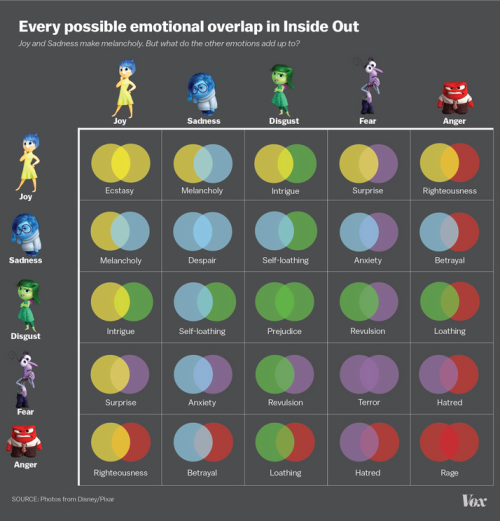
Emotional Overlap / Inside Out
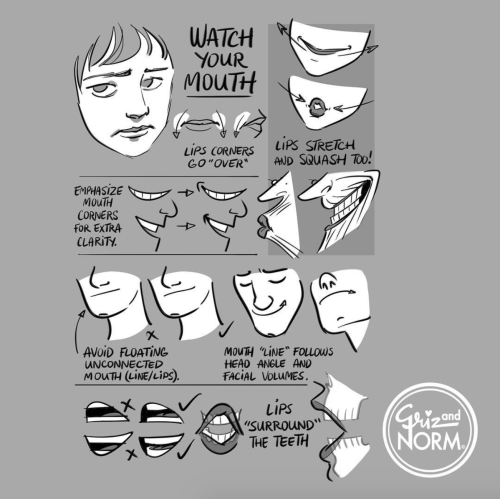
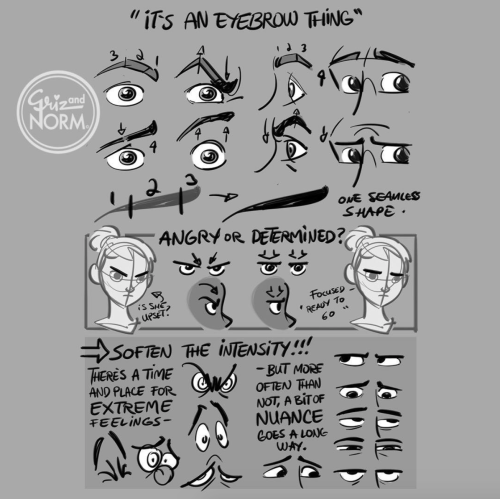
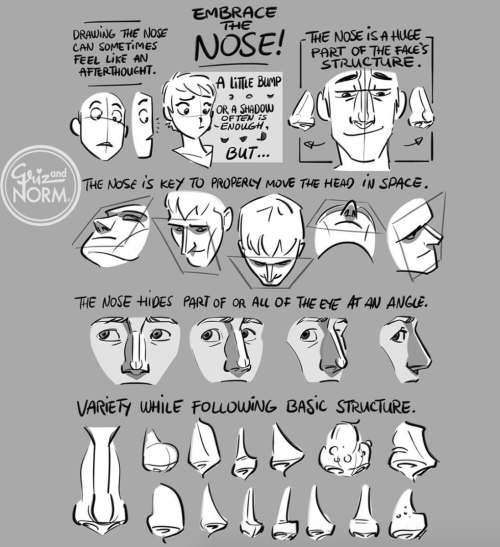
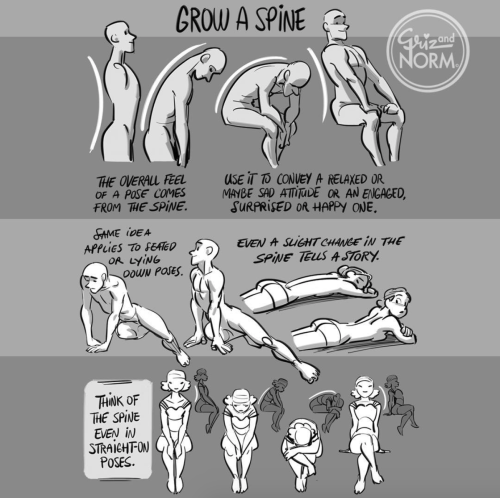
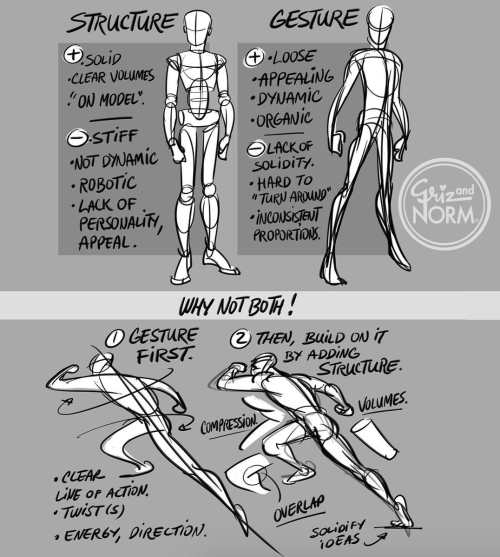
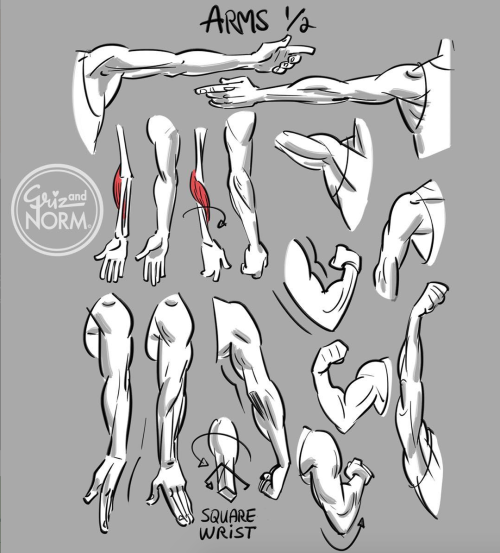
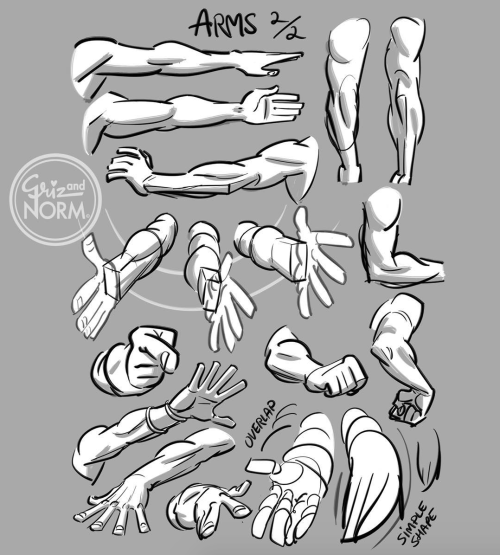
Art tutorials by Disney artists Griz and Norm Lemay
List of Elemental Abilities
Air/Wind
Aerokinesis -manipulate the air, wind, and gas.
Aeroportation - teleport using air/wind currents.
Air Mimicry - transform into a cloud of gas, fog, or mist.
Atmokinesis - manipulate the weather by mixing water, fire, earth, air, and lightning/electricity.
Deoxygenation - suck up all the oxygen from a place.
Lung Adaptation - breath anywhere
Wind Generation - create blasts of air.
Divine Winds Manipulation - create and control heavenly winds.
Dark Wind Manipulation - create and control eerie winds.
Earth
Geokinesis - control, manipulate, and reshape the earth at will.
Atmokinesis - control and manipulate the weather by mixing water, fire, earth, air, and lightning/electricity.
Crystallokinesis - manipulate minerals and crystals.
Ferrokinesis… manipulate metal at will.
Fraxikinesis - manipulate burnt matter.
Geo-Thermokinesis - manipulate, control, and create lava, magma and volcanoes.
Golem Creation - make golems out of inanimate materials like rocks, wood, plants, magma, etc.
Granulation… can turn things into sand.
Halokinesis - control and manipulate salt.
Hyalokinesis - control and manipulate glass.
Koniokinesis - manipulate and control dust particles.
Plassikinesis - manipulate and control all forms of plastic.
Psammokinesis - can control and manipulate sand.
Terrakinesis - control, manipulate and alter/reshape the surrounding terrain and landscape at will.
Terraportation - teleport via the earth and earth-based materials.
Sacred Earth Manipulation - Create, manipulate, control, reshape divine earth minerals.
Black Earth Manipulation - Create, manipulate and control tainted and evil earth minerals.
Fire
Pyrokinesis - create, control and manipulate fire, flame and heat.
Atmokinesis - control and manipulate the weather by mixing water, fire, earth, air, and lightning/electricity.
Fire Breath - breathe out flames.
Geo-Thermokinesis - manipulate lava, magma and volcanoes.
Heliokinesis - manipulate and control the sun and sunlight.
Hell-Fire Manipulation - Generate and control flames of hell.
Holy Fire Manipulation - Generate and control flames of Heaven.
Inflammation - burn things.
Melting - heat molecules to melt things.
Plasmakinesis - can control plasma.
Pyrotechnics - create fireworks.
Self-Detonation - explode self and reform.
Thermokinesis - create, control and manipulate heat.
Water
Hydrokinesis - manipulate and control liquid water and mold it into any desired shape or form.
Aquatic Adaptation - adapted to underwater living.
Aquatic Respiration - breathe underwater.
Atmokinesis- control and manipulate the various aspects of the weather by mixing water, fire, earth, air, and lightning/electricity.
Dehydration - absorb water.
Hydroportation - teleport across short or long distances through liquid water.
Water Mimicry - turn into liquid water.
Holy Water Manipulation - create, manipulate and control graceful waters.
Dark Water Manipulation - create, manipulate and control evil and dangerous waters.
Darkness
Umbrakinesis - can manipulate and control darkness or shadows.
Animated Shadow - Animate one’s shadow.
Light Absorption - block out light in an area.
Night Vision - see in the dark.
Sacred Darkness - create holy darkness.
Shadow Camouflage - be unseen in shadows.
Shadow Mimicry - become a shadow.
Umbrageous Teleportation - teleport via the shadows and darkness.
Electricity/Lightning
Quintessence Force -Can generate whitish-blue lightning that also contains pure life energy.
Electrokinesis - control, generate or absorb electric fields and shoot lightning bolts.
Activation & Deactivation - turn stuff on and off.
Positron Manipulation - control positrons, the antimatter counterpart to electrons.
Electrical Absorption - absorb electricity.
Electric Mimicry -transform entire body into a lightning-like being of pure electrical energy
Electrical Transportation - teleport with lightning.
Divine Lightning Manipulation - create and control the brightest lightning.
Black Lightning Manipulation - create and control the darkest lightning.
Energy
Dynamokinesis - manipulate existing energy.
Energy Blast - create blasts of energy.
Energy Emission - release energy.
Quintessence Force - create and manipulate unique form of electrical and life energy.
Mana Manipulation
Chi Manipulation
Electricity Manipulation
Energy Manipulation
Ice
Cryokinesis - control ice, snow and other forms of frozen water.
Freeze Breath - freeze things in solid ice.
Freezing - lower the temperature in kinetic atoms to freezing temperatures.
Frigokinesis - control snow either as precipitation or already on the ground.
Ice Beam - shoot beams of freezing energy.
Ice Generation
Light
Dark Light Manipulation - create the darkest light in existence.
White Light Manipulation- create sacred light from the divine.
Photokinesis - create and manipulate pure light.
Force-Field Generation - create protective shields of solid photons.
Invisibility - be unseen.
Laser Emission - bend light wavelengths to create lasers.
Light Absorption -absorb the light around you.
Light Generation - emit blinding light or glow in the dark.
Light Mimicry - take on the traits of light.
Photoportation - Teleport by using photons.
Projective Invisibility - turn other things invisible.
Evil Banish - Rid and banish all spirits of evil and black magic.
Light Manipulation
Weather
Atmokinesis - manipulate the various aspects of the weather by using water, fire, earth, air, and lightning/electricity.
Atmokinetic Resistance - immunity to all weather-based abilities and effects.
Atmokinetic Sensing - sense the future weather patterns.
Other
Aether Manipulation
Cosmic Manipulation
Gravity Manipulation
Nether Manipulation
Space-Time Manipulation
From Superpower Wikia. See their complete list of superpowers HERE.
Damn the tmnt fandom is so toxic like whats with all rottmnt fans hating on 2012 tmnt and vise versa?? Both shows have their flaws but attacking other people for what they prefer is just??? what??? It’s a cartoon with mutant pizza eating karate turtles stop holding one generation over the other as “the REAL tmnt!!1!” There is no “REAL” tmnt ffs. Go outside or smthn.








Dennis Basso Pre-Fall 2017 Collection
Useful perspective grid tool website

https://www.reubenlara.com/perspectivegrid/
Further reading:
An artist’s guide on how to keep things in perspective
A homie posted this in our discord server! Join today and invite your friends to an amazing community! <3 https://discord.gg/sCg9jCY

sadly
How I Wrote A Novel.
This, in a nutshell, is what I did to get a book with my name on it.
NOTE: This is just my personal way of making the words go. Other people have different ways to make their words go. In the world of words, there are no right answers. There’s just lots and lots of tea/coffee/tear stains.
1). The Idea
When I get an idea for a story, I open up a document, label it “Brainstorming,” and start making a bullet list of events that consist of the plot.

It has to be an idea with tangible weight. A stray bit of dialogue or something vague like Halloween, that doesn’t give me much to work off of. Halloween creatures living on the same street where it’s Autumn every day- now that’s something I can build from.
What kinds of creatures are they? What do they do? What do their houses look like? The best ideas are the ones that spark more.
2). First Draft

This is the easy part- and the most challenging. Easy, because there’s literally no bar. I just sat there and typed. But it’s a huge mental challenge.
When I was in first draft mode, I wanted that story out. I thought that by making it such a rough, far-away version from the concept in my head, I was only delaying the day where I’d hold it in my hands. Turns out, that’s what got it to take on physical form in the first place. So I quieted down, grabbed my laptop and some hot tea, and typed.
3). Dissecting the First Draft

After I finished draft one, I printed it all off and highlighted the scant amounts that were passable for the next phase. Dialogue, descriptions, setting- anything that didn’t look like it was up to par was scratched out and omitted.
I call the above pictures A Slow Descent Into Madness.
4). The Second Draft

On a fresh document, I rewrote the story altogether- and it make a difference. I was coming up with things I hadn’t even thought of previously. And it was surprising how much better the plot was than the first time around. But it was still rough.
5). Draft Three

My method was to start with the bigger, more obvious issues and work my way down. Any plot holes I found were noted, and my outline was constantly under revision. I cut out entire scenes and made mental notes on ways they could be fixed/replaced.
This is where I started cutting chapters in half to make the story flow better- but I didn’t bother writing in usable chapter titles. Instead, I improvised:
6). Drafts Four and Five

These were dedicated to correcting the smaller, less obvious plot holes. This was the point where the story finally started to look close to what would become the final version.
7). Drafts Seven Onward

With the story line looking how I wanted, I then moved on to sentence structure. That one song that looked terrible? Rewritten. Over-the-top descriptions and excessive prose? Gone.
8). Editing and Proofing
This is where I had outside help. Besides this useful tool, I had two people check for spelling issues and the overall story. Once it was in decent shape to be made public, I asked for some additional help.
9). Betas
My betas were in the age range that my novel was geared toward, along with a couple of teachers and parents (as it was middle grade). I gave them the full manuscript, along with seven basic questions like “Which characters were your favorite/least favorite and why?” and “Was there a part of the story that didn’t make sense?”
I gave my betas three months to read a 42,590 word story, and by the end they gave me back the review sheets.
10). Final Adjustments
After I read over the reviews, I let the comments sit for three days so that I could proceed with a clear head. I smoothed out any flaws, scanned over the MS twice to make sure everything was right, and that is how I got to the end of writing my first novel.
Next comes publishing- which is a different beast entirely.
Sketchfab 3D Models
I love this site because it’s great for references, even if you don’t 3D sculpt! I’d love to get into that eventually though, because it sounds amazing.
https://sketchfab.com

What’s lit is you can easily drag and rotate the model (some are animated!) and adjust the lighting/rendering, all from a web browser.
They also have a mobile app with AR.
I love using the models!

boot

If you make an account, you can subscribe to collections to track for updates. I have ones for anatomy and animals.
Note, these models have a royalty free license. It’s often good to credit your references, but royalty free licenses mean you are fine if you don’t.
Hope you love this as much as I do!
some fucking resources for all ur writing fuckin needs
* body language masterlist
* a translator that doesn’t eat ass like google translate does
* a reverse dictionary for when ur brain freezes
* 550 words to say instead of fuckin said
* 638 character traits for when ur brain freezes again
* some more body language help
(hope this helps some ppl)
ATTENTION WRITERS
Google BetaBooks. Do it now. It’s the best damn thing EVER.

You just upload your manuscript, write out some questions for your beta readers to answer in each chapter, and invite readers to check out your book!
It’s SO easy!

You can even track your readers! It tells you when they last read, and what chapter they read!

Your beta readers can even highlight and react to the text!!!

There’s also this thing where you can search the website for available readers best suited for YOUR book!
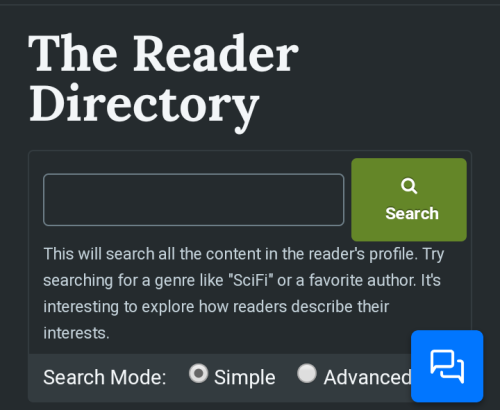
Seriously guys, BetaBooks is the most useful website in the whole world when it comes to beta reading, and… IT’S FREE.
Read this and save a life - YOUR OWN
From a surgical nurse and certified CPR teacher:
Please pause for 2 minutes and read this:
1. Let’s say it’s 7.25pm and you’re going home (alone of course) after an unusually hard day on the job.
2. You’re really tired, upset and frustrated.
3 Suddenly you start experiencing severe pain in your chest that starts to drag out into your arm and up in to your jaw. You are only about five km from the hospital nearest your home.
4. Unfortunately you don’t know if you’ll be able to make it that far.
5. You have been trained in CPR, but the guy who taught the course did not tell you how to perform it on yourself.
6. HOW TO SURVIVE A HEART ATTACK WHEN ALONE? Since many people are alone when they suffer a heart attack without help, the person whose heart is beating improperly and who begins to feel faint, has only about 10 seconds left before losing consciousness.
7. However, these victims can help themselves by coughing repeatedly and very vigorously. A deep breath should be taken before each cough, and the cough must be deep and prolonged, as when producing sputum from deep inside the chest. A breath and a cough must be repeated about every two seconds without let-up until help arrives, or until the heart is felt to be beating normally again.
8. Deep breaths get oxygen into the lungs and coughing movements squeeze the heart and keep the blood circulating. The squeezing pressure on the heart also helps it regain normal rhythm. In this way, heart attack victims can get to a hospital.
9. Tell as many other people as possible about this. It could save their lives!!
10. A cardiologist says If everyone who gets this mail kindly sends it to 10 people, you can bet that we’ll save at least one life.
11. Rather than sending jokes, please... contribute by forwarding this mail which can save a person’s life.
12. If this message comes around you... more than once… please don’t get irritated... You should instead, be happy that you have many friends who care about you & keeps reminding you how to deal with a Heart attack.
please take the time and boost this post by reposting it and sending it to those you love because we all need to understand how to quickly deal with heart attacks
5 Ways to Improve Worldbuilding in Speculative Fiction

Written by: Angela Brown
When you build a new world, you’re responsible for building the very essence of any good story. In the genre of speculative fiction, which can include science fiction, fantasy, and magical realism, it may be tempting to go overboard with your writing. Doesn’t creating a new reality mean that you get to pack in as much intricate detail and description as you want? Nope – not unless you want to risk putting your readers to sleep. What about creating a fantastical land with no logic and rules? It sounds great in theory, but any contradictions can actually confuse people—or even worse, make them give up trying to make sense of your world and stop reading. Here are five suggestions that might help you improve your worldbuilding ability:
1. Be Unpredictable No one wants to read just another variation of the same old story they’ve read before. There are tons of speculative fiction tales out there, and the majority of dedicated readers have seen and read it all. What you need to give them is something fresh and something new. Hook them in, keep them engaged, and keep them guessing. Even readers who are new to the genre want to see what makes it so different from other genres, so it’s up to you to defy their expectations. ‘Defying Expectations’ states that the key element of a successful story is the need for the reader to have a sense of epiphany—where they learn something new. “At that moment, the brain will release several hormones, such as dopamine, serotonin, adrenaline, and others associated with learning,” which gives you that magical addictive rush that gets you addicted to discovering the story’s outcome. So, go ahead and create that plot twist that takes your story in a completely different direction—maybe you’ll even surprise yourself.
2. Stay Grounded Even though the word “speculative” is part of the genre, it’s always best to make sure that some elements of the story remain grounded in aspects of reality. You can always include strange and wonderful details alongside these aspects, but if they don’t flow with the plot, this may break the reader’s fragile immersion in your story. In order to build a believable yet fascinating world, you only need to look at current trends for inspiration. Maryville University claims that many online universities now offer flexible start dates, personalized support, and completely online coursework – is it such a stretch to create a dystopian world in which schools in the future had students sitting in their homes and attending lectures through virtual reality, never actually meeting anyone or experiencing anything for themselves? Also, researchers from the United Nations have estimated that by 2050, medical technologies will see over 3 million people live over the age of 100 at any given time – is immortality really that far off? To sum this up, you should build upon what’s familiar and combine it with other fantastical elements to give that special magic.
3. Be Flawed One of the biggest problems that speculative fiction writers often face is the inability to accept that their worlds and characters may be flawed. Perfection is boring. You need to ask yourself, “Is there a problem in my world that needs to be solved? How can I make my characters suffer, and more importantly, why do my readers care?” Everyone should have their personal downfalls, even your all-powerful heroes and gods. In ‘Creating a Sense of Wonder in Your Writing’ it suggested creating characters so that they are both realistic and fascinating. A common tendency is for authors to create flat stock archetypes like your typical elves and dwarves. Instead, he suggests modeling characters on interesting historical figures like Hitler or Gandhi to add a dose of multi-dimensional realism. In the end, it pays off to recognize the little quirks and faults in your worlds. Instead of working hard to iron them out, just embrace them because they help your world echo our reality.
4. Show, don’t tell When you start writing your first draft, D.N. Bryn, a speculative fiction writer, suggests diving straight in. As your main character interacts with your world, it also helps your reader learn about it. There’s always more time in later drafts to adjust and develop stronger explanations behind your ideas. Also, she suggests that you should limit the amount of exposition in your first chapter. Once your readers are already immersed in the first chapter, they’re more likely to sit through exposition in the second because they’ve already formed a bond with the story and the characters. Lastly, she emphasizes the “build” in worldbuilding. It’s important that each new piece of information is based off what you’ve already established, starting with the most basic of concepts. This prevents you from drowning the reader in a flood of information.
5. Step in, step back As Margaret Atwood mentions in a feature on Fast Company, you want to devote time to looking at how your characters may see their world, and then step back and look at the big picture. For Atwood, she likes to “wonder what people would have for breakfast…and whether or not they would say a prayer over them, and how they would pay for them, and what they would wear during that meal … Breakfast can take you quite far.” Basic acts like these allow you to indirectly allude to your world’s values, systems, and customs. Similarly, V.E. Schwab identifies “world-building and setting… as the first character”, which she develops before anything else. After these core elements and norms are planned out, she adds greater detail. It’s always important to make your reading accessible to your reader- otherwise, all your great ideas may go unread.
Worldbuilding may sound like a complicated journey, but it’s a highly rewarding process. Ultimately, your main focus should be on helping your readers understand your characters and plotlines. This means sharing your unique version of a world that they want to explore. If you’re having trouble finding some inspiration, you might want to have a look at The Internet Speculative Fiction Database (ISFDB), which catalogs various works and upcoming releases. For more helpful writing tips and suggestions, feel free to subscribe to #WritingTips.
Angela Brown has always wanted to be a writer. She first started writing sappy poems about taking care of her cats when she was 9 years old, and then she wrote some articles for the school paper. Pretty soon, she was writing short stories and fan fiction, and by college, she’d realized it was what she wanted to do for the rest of her life. She currently works for a contact center in the day and works on her writing at night, blogging until she’s confident enough in her short stories to get them published.
***
Creating the Perfect Cast Workshop
In this class, you’ll learn specifically how to
Build characters that intrigue your reader
Devise characters that we either love, or love to hate
Recognize the various roles that certain types of characters play in your novel, and then figure out how to adapt these characters to suit your novel.
Create tension by creating storylines that better exploit your character’s personality
Make sure that your cast isn’t too lean or bloated
And much more.
This workshop will be held from Thursday, Feb 27 through Saturday Feb 29, 2020 in Provo, Utah
Price per student: $449
We will start daily at 9:00 A.M. and go until 5:00 P.M.
Please bring a laptop and an idea for a novel to work on. We will be doing daily writing exercises, have daily lectures, and we will be critiquing your work and the work of other students.
There will be a maximum of 16 students in the class.
Find out more or register at https://mystorydoctor.com/live-workshops-2/
For those struggling financially.
I thought I’d post some helpful links to sites I use for extra cash. These sites have saved my bacon more than a few times in the past couple of years. I can vouch that they do work and are not scams. I’ll post info with each site and how they work.
1.) Swagbucks This one is my go to website because it has the most to do. You can watch videos on your tablet, iphone, or desktop. There’s surveys you can fill out and special offers that are free(though if you do those special offers I’d use a junk email, but keep in mind that you do need to register for Swagbucks with the email associated with your paypal so you can get paid). Since I’m a stay at home mom I am mostly doing this all day long while doing my art commissions or running this blog. I earn about $100-$200 a month from this site alone. They also have giftcards to other stores, and if you redeem some of the $25 giftcards they are 300 sb(equivalent to $3) once a month. So I suggest redeeming one wal mart giftcard a month to take advantage of that and save the 300 sb(sb are points btw). Use this to get yourself groceries or necessities. The rest of the month you can redeem paypal and you can get that cash transferred to your bank to help pay for bills.
*removed*
3.) Inbox Dollars This one is very slow to pay out for me but that’s only because I JUST do the emails. It does offer special offers, surveys, and videos like swagbucks but I only concentrate my efforts on clicking the links in the emails they send me. By clicking the links in the emails you earn 2 cents. This adds up with time and its easy to do when you check your email like you normally do. It takes very little effort so it’s worth adding to your daily routine. If you want to do more on this site then you’ll earn faster. They mostly just send you a check, but they do offer a debit card and giftcards now.
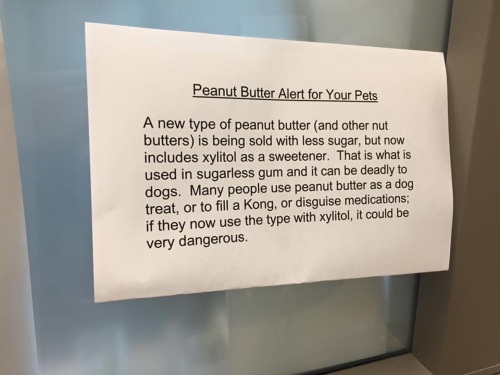
Dog owners please be aware.
Small physical things that give your characters personality
How they smile
What their “tell” is for lying
Posture
Volume of speech, if they’re verbal
Nervous tics
How much eye contact do they make
In a group conversation, how close do they stand to others? Are they off to the side just listening and occasionally speaking or are they right next to people?
When standing, what do they do with their hands? Talk with their hands, cross their arms, put hands in pockets, prop up against the wall, etc
The sound of their footsteps
Nonverbal greetings: do they wave, nod, hug, glare, punch, high five, something else?
How do they get others’ attention? Raise hand, clear throat, etc
I am a(n):
⚪ Male
⚪ Female
🔘 Writer
Looking for
⚪ Boyfriend
⚪ Girlfriend
🔘 An incredibly specific word that I can't remember
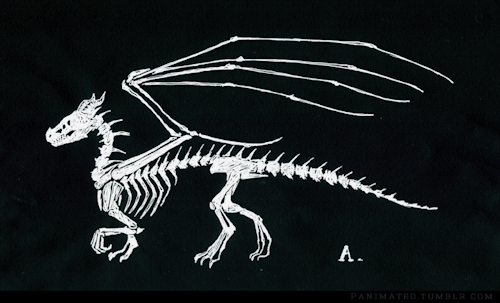
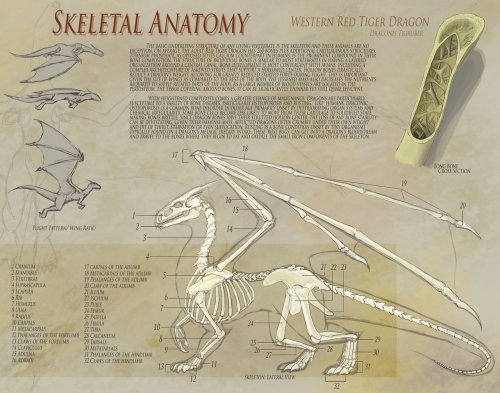
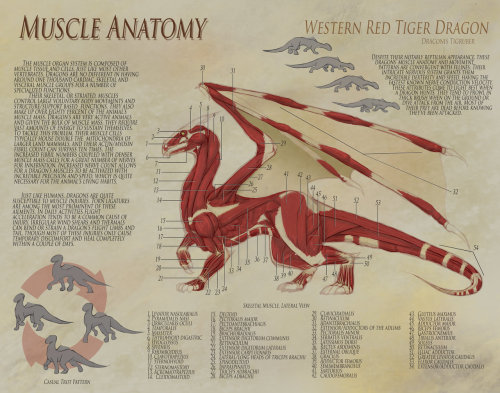
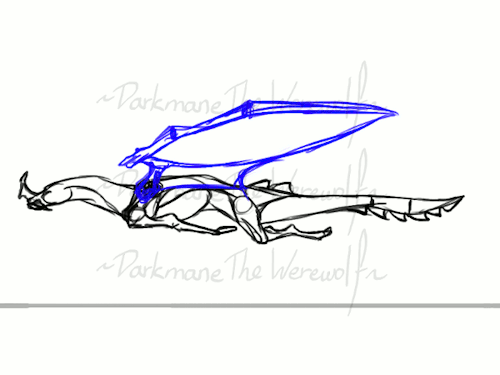
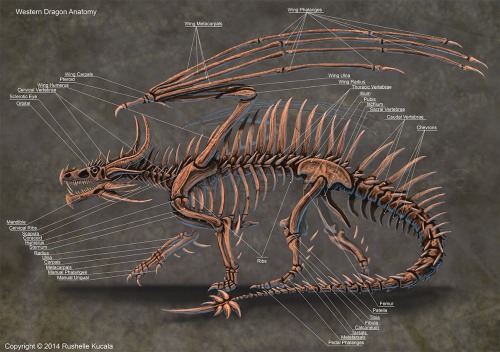
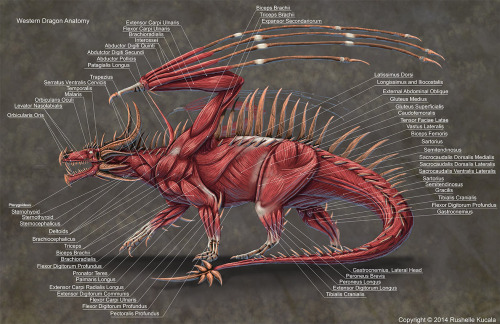
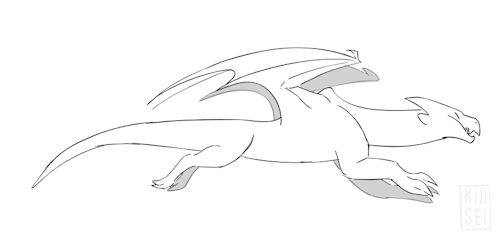
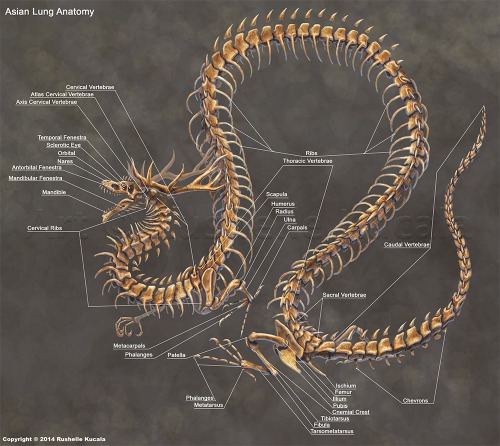
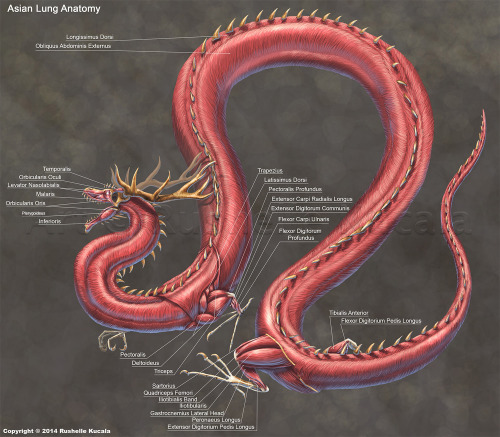

Dragon Anatomy Top Image Row 1 Row 2 Row 3 Row 4 Row 5 Bottom Image